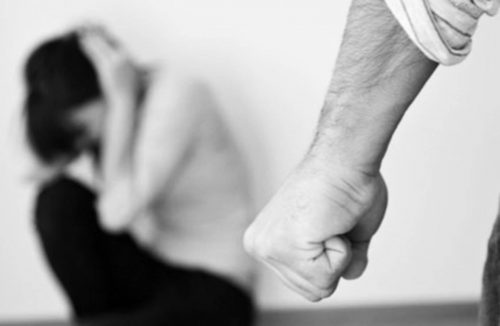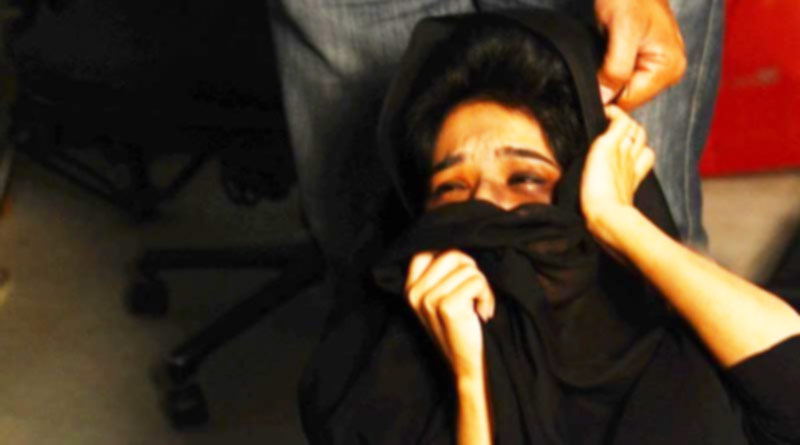Melbourne, February 20: The Melbourne Magistrates’ Court heard yesterday, that the Melbourne man, who cannot be named for legal reasons, is accused of keeping his wife as a slave and forcing her to remain in their bedroom.
The hearing before Magistrate Belinda Wallington alleged that that woman, who is also of Indian origin, would only be let out when she was asked to cook and clean around the house, like a slave.
The man is facing a committal hearing and is charged with intentionally reducing a person to slavery between August and October 2015.
He is also accused of physically, sexually and verbally abusing his wife, according to the police documents.
It is further alleged that his wife survived on bread and pickles only.
Police summary stated that she was “provided with very little food and often lived on bread and pickles.”
The court, which was closed to the public as the woman gave her evidence yesterday, heard that the woman was forced to do all the cooking and cleaning not only for her husband but also her brother-in-law. She was regularly physically, verbally and sexually abused by her husband, including regular forced oral sex, prosecutors said.
She has alleged that she was forced into such a state from the moment she arrived in Australia.
She was instructed to cook, clean and do the laundry immediately upon setting foot into Australia, although she was exhausted from the journey, akin to being a slave.
According to police documents, the accused man “constantly demanded” that his wife “request money from her family in India”.
“She did not have access to money, and when she asked if she could go to work to earn money her husband told her she could not leave the house.”
Police also alleged she was not allowed to visit a doctor or take any medications and she felt she was constantly monitored.
The woman’s alleged slave-like condition was exposed when her brother-in-law caught her using a computer to contact her sister to ask for advice.
Police said that her brother-in-law told her he could not wait to find out what his brother would do to her when he got home, which is when the woman became fearful and fled the house, seeking help from neighbours.
She was then supported by a family agency which contacted the Australian Federal Police later in April 2016.
An investigation was then launched after which police charged her husband. The hearing continues.
This is the second case of an emerging tale of an Indian-origin man being charged for keeping a slave and human trafficking and surprisingly both these cases refer to the treatment of their wives and family.
Another Indian origin man was charged late last year, with trafficking his wife and 2-month old daughter, from Sydney to India.
Australian Federal Police alleged that the man used “coercion, threats and deception” to get his Indian-born wife to travel to India with their Australian-born daughter.
He was charged with one count of trafficking persons, forging documents and general dishonesty charge.
With many more such cases emerging and going uncharged, Assistant Minister for Home Affairs Alex Hawke, earlier, committed to introducing a draft Bill for an Australian Modern Slavery Act to Parliament by June 30.
The Bill is expected to pass final legislation by the end of this year.

The initiative is being co-developed by Andrew Forrest’s Walk Free for an Australian ‘national estimate’ for modern slavery. This new initiative will also support victims of forced marriage.
Victims of forced marriage will now be able to access up to 200 days of support through the Support for Trafficked People Program without being required to contribute to a criminal investigation or prosecution.
As revealed in last year’s Global Estimates of Modern Slavery – produced by Walk Free and the International Labour Organization in partnership with the International Organization for Migration (both U.N. agencies) – a shocking 15.4 million people are living in situations of forced marriage globally.
Women and girls are disproportionately affected and account for 84 per cent of victims.
Nidhi Mehta
Similar Posts by The Author:
- Supriya Shrinate delivers Kangana Ranaut a huge advantage
- The Mahua Moitra saga – Is she a victim for Shashi Tharoor to save?
- Election 2022: Matthew Guy is closing in on Daniel Andrews
- Harry and Meghan claims: Queen responds but the Today team is divided
- Alleged Hindu phobia gets Rinku Sharma killed in India

